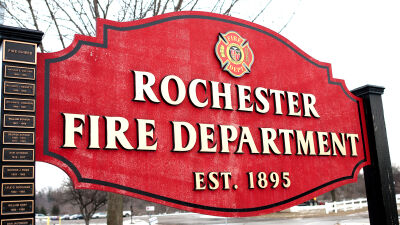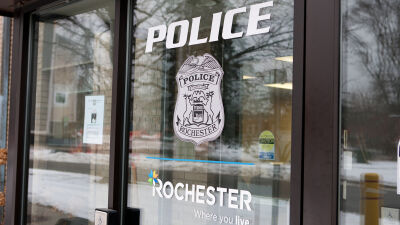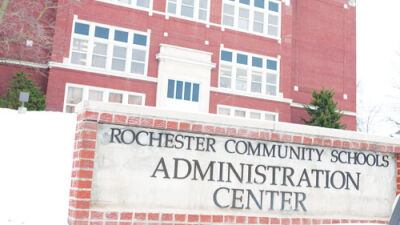ROCHESTER — Residents of the Rochester Community Schools district will vote on a possible renewal of the school operating millage Feb. 27.
RCS voters last approved a levy for 19.9307 mills on non-homestead property over a 10-year period in 2014. Since then, the millage has been eroded by the Headlee Amendment, and it now stands at 18.5004 mills.
The proposal asks voters whether to renew 18.5004 mills and restore 0.5 mill eroded by the Headlee Amendment — for a total of 19.0004 mills — for a period of five years.
Although the Feb. 27 ballot language will ask for a renewal of 18.5004 mills, along with an increase of 0.5 mill, only 18 mills would be levied, according to RCS Interim Superintendent John Silveri. If it’s approved, district officials said, the total 1.0004 mills above 18 mills would be used to offset potential Headlee rollbacks, which can reduce the millage rate to adjust for inflation.
Residents might wonder why the district is also asking for an increase along with the renewal.
“There is something called Headlee erosion, and, over time, it’s an adjustment based on inflation. What we’ve seen when this last passed 10 years ago, originally the voters authorized about 20 mills, but at no time are we able to, even if we wanted to, levy more than 18. The additional mills that are authorized simply account for Headlee erosion. This initiative will be for five years. It’s a renewal of 18.5 mills for five years, an increase of 0.5 for those five years too. It is just insurance of almost what is certainly going to be some additional Headlee erosion over time,” Silveri said.
Silveri admitted the ballot language can be “a little bit confusing.”
“We tried like the devil to make it a little bit more understandable, and this was the best we could do, so I want to make clear it’s asking for a renewal of the current 18.5 mills that had been authorized by the community and then an increase of 0.5 mills,” he said.
Under the school aid funding formula set by Proposal A in 1994, the state of Michigan assumes that the district collects 18 mills — $18 in taxes for every $1,000 of taxable value — on non-homestead property annually. Non-homestead property includes business real property, rental homes, vacant land, second homes and commercial personal property, including business equipment and furnishings. The tax is not collected on owned primary residences; however, it is required to be approved by the school district’s voters.
“If you own a (primary residence) home in Rochester or anywhere within the Rochester Schools, you’re not impacted by this in any way, shape or form,” Silveri said. But you are “if you own a second home, a rental home, or a business,” he said.
All school districts in Michigan must levy 18 mills on non-homestead property to receive their full foundation allowance from the state. If the millage rate falls below 18 mills due to the Headlee Amendment, Silveri said, the district would not receive its full foundation allowance.
“This protects us so that over the next five years, if that erosion takes place and that 19 starts to drop, we should be in good shape so that at no time would it drop below 18,” he said.
If the millage does not pass, RCS per-pupil revenue would fall from $9,608 to $8,060, which equates to a loss of $24.5 million per year in district funding. The state does not replace the 18 mills if the voters do not approve it, Silveri explained.
“If this were not to pass, that impact on the district would be really, really significant. … It’s really, really critical for us to receive that full foundation allowance and full funding to continue to offer the programs and services and staffing and everything we do now, so it’s absolutely critical for us that the community continues to support us in this matter,” Silveri said.
“We hope all residents vote on Feb. 27. The district’s non-homestead operating millage costs zero dollars for an owned primary residence, yet it would enable our school district to receive its full per-pupil funding if approved. These funds are critical to supporting programs and service in our schools,” RCS Board of Education President Michelle Bueltel said in a statement.
Since the passage of Proposal A in 1994, the district has sought approval of this millage three times, in 1995, 2005 and 2014. The current 10-year millage was approved by voters in 2014.
Additional information, including a list of frequently asked questions, is available on the district website at www.rochester.k12.mi.us/about-us/millage2024.
 Publication select ▼
Publication select ▼



























